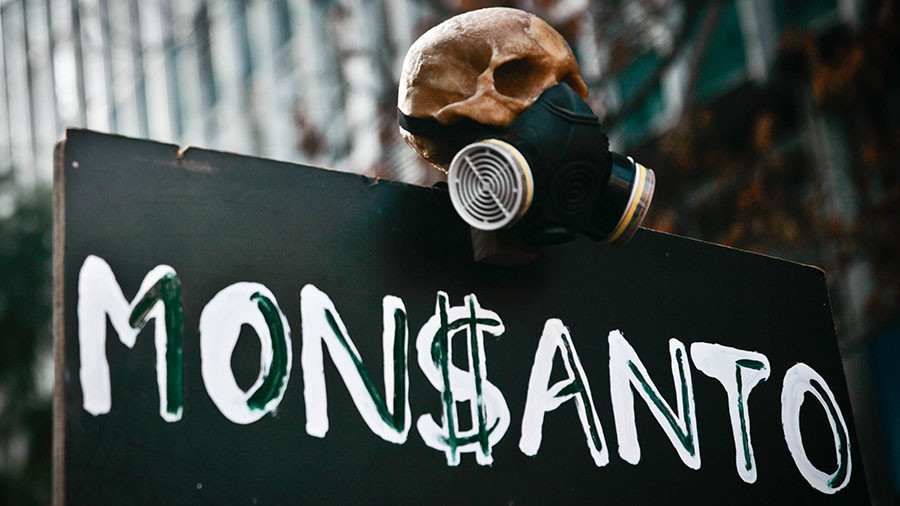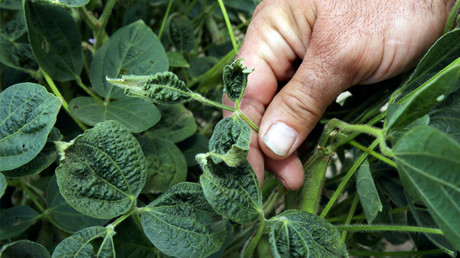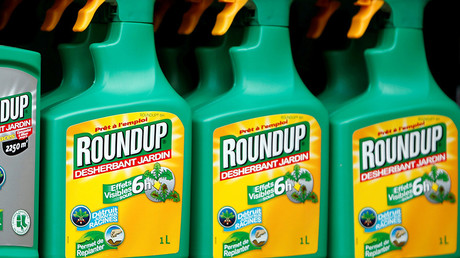
Monsanto is offering cash incentives to US farmers who use a weed killer that is facing heavy restrictions. Critics say the perk program is meant to increase sales of a product that is believed to harm crops.
The American agrochemical and biotech corporation is offering cash back to US farmers who use XtendiMax, Monsanto’s controversial herbicide, while growing soybeans engineered to resist the weed killer.
The promotional campaign promises $6 per acre in cash to farmers who lather their Xtend soybeans in XtendiMax and VaporGrip, a herbicide based on a chemical known as dicamba. One acre of crops typically needs about $11 worth of XtendiMax.
Farmers and agricultural experts say the weed killer is ineffective and unsafe, contributing to a US agricultural crisis this year. When sprayed, the herbicide is known to drift away – often contaminating different crops unable to withstand the chemical. In August, farmers began posting photographs of fields of beans, peach orchards and vegetable gardens withering away. Millions of acres of damaged crops have been blamed on XtendiMax and other dicamba-based weed killers.
Farmers have submitted more than 2,700 reports to state agricultural agencies claiming dicamba spraying has destroyed 3.6 million acres of soybeans, according to the US Environmental Protection Agency (EPA). The herbicide is also blamed for destroying other crops, such as cantaloupe and pumpkins. The cash-back offer comes as federal and state regulators are requiring training and restrictions for farmers who are planning to use dicamba-based herbicides in 2018.
North Dakota has announced that it intends to prohibit the use of dicamba herbicides after June 30, 2018, and when temperatures top 85F (29C) in a bid to prevent the chemical from drifting away from where it is sprayed. Missouri and Minnesota are also considering placing restrictions on XtendiMax soon.
Arkansas has proposed even tighter restrictions. As a result of dicamba spraying, 900,000 acres of crops were reportedly damaged in Arkansas alone – more than any other state. Arkansas is now close to prohibiting dicamba sprayings after April 15, 2018.
Although their access to XtendiMax may be restricted, Arkansas farmers will be offered different herbicide incentives, to help them “achieve excellent weed control,” according to a Monsanto press release.
Monsanto’s genetically-modified seeds and agricultural products have faced scrutiny from farmers and governments alike. In November, the State of California added glyphosate, the main ingredient in Monsanto's herbicide Roundup, to a list of cancer-causing chemicals – a decision which the agrochemical giant says it will fight in court.
Monsanto faces similar resistance in Europe. Also in November, French President Emmanuel Macron vowed to ban glyphosate weed killer within three years. The product, used worldwide for decades, has been at the epicenter of heated debates since 2015, when a study by the World Health Organization linked the chemical to cancer.




0 Comments:
Post a Comment
Subscribe to Post Comments [Atom]
<< Home